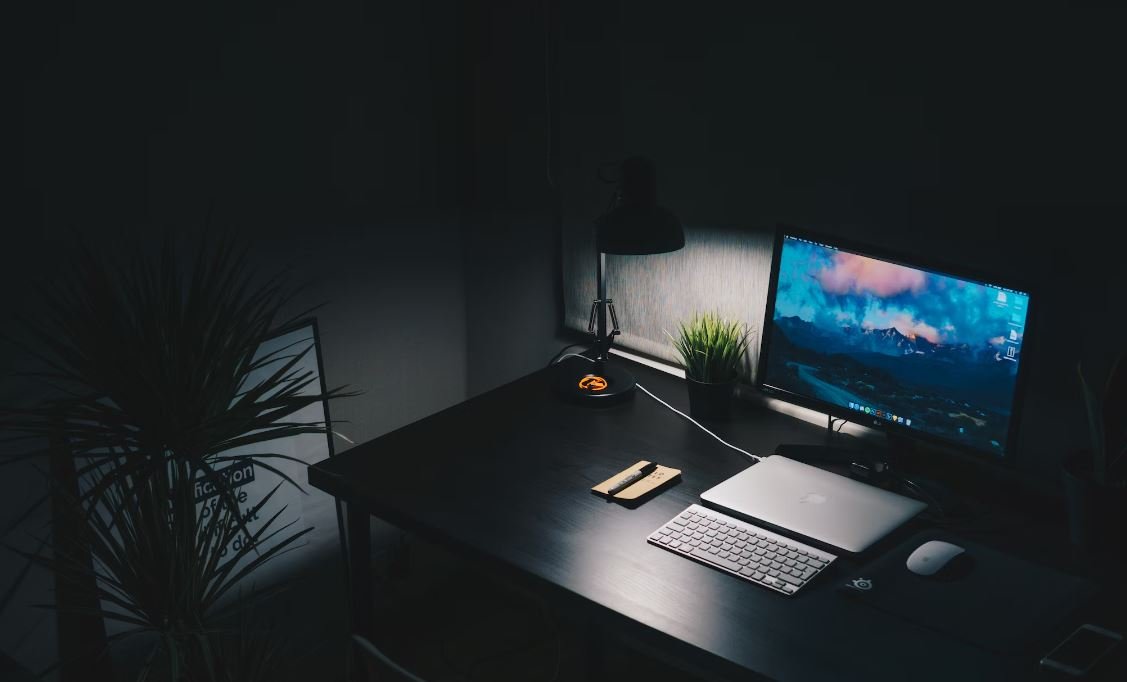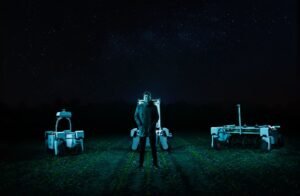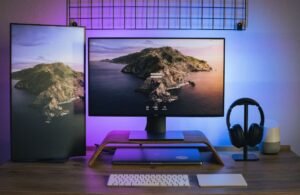Will AI Replace Film Composers?
In recent years, Artificial Intelligence (AI) has rapidly advanced, leading to concerns about its potential impact on various industries. The field of music composition is no exception. As AI technology continues to evolve, there is growing speculation about whether AI will eventually replace film composers. This article aims to explore the current state of AI in film composition and provide an analysis of its potential future impact.
Key Takeaways
- AI has made significant advancements in the field of music composition.
- While AI can generate music, it lacks the emotional depth and human touch of film composers.
- Film composers bring a unique and creative element to the storytelling process.
- Collaboration between AI and film composers may lead to new innovative approaches.
- It is unlikely that AI will completely replace film composers, but the role of composers may evolve.
The Current State of AI in Film Composition
AI technology has made remarkable progress in generating music that mimics the style of famous composers or specific genres. Using machine learning algorithms, AI can analyze vast databases of existing compositions and create original pieces with similar characteristics.
However, AI-generated music currently lacks the same emotional depth and nuances that film composers bring to their work.
The human element of film composition involves understanding the director’s vision, interpreting the story, and capturing the right emotions to enhance the cinematic experience. This level of creativity and intuition is yet to be fully replicated by AI.
The Unique Role of Film Composers
Film composers play a crucial role in storytelling. They collaborate closely with directors and other professionals involved in the production to create music that enhances the narrative and elicits specific emotions from the audience. The process involves composing original scores, selecting or creating appropriate sound effects, and synchronizing music with the visual elements of the film.
Film composers add a unique and human touch to the composition process that AI cannot replicate.
Their expertise and ability to understand various musical genres, instruments, and orchestration techniques enable them to create customized soundscapes that perfectly complement the visual storytelling. Film composers often bring their own artistic flair, elevating the film to new heights.
The Potential for Collaboration
While AI may not be able to replace film composers entirely, there is potential for collaboration between AI technology and composers. AI can assist composers in generating musical ideas, exploring different variations, or even suggesting innovative melodies based on analyzed data.
This collaboration can open up new creative possibilities, pushing film composers to experiment and explore uncharted territories in their craft.
With AI’s analytical abilities and composers’ artistic sensibilities combined, filmmakers may benefit from a synergistic approach that enhances the overall production value.
The Evolution of Film Composition
As AI technology continues to advance, it is inevitable that the role of film composers will evolve. While AI can generate music that meets specific criteria, human composers will still be essential in bringing unique artistic expression and creativity to the table.
Beyond creating music, composers contribute to the collaborative process, collaborating with directors and other professionals to ensure the music aligns with the film’s vision and concept.
Data and Insights
| Year | AI Composition Algorithms |
|---|---|
| 2015 | First AI-based music composition software developed. |
| 2017 | AI-based composition software capable of mimicking specific musicians. |
| 2020 | AI-generated compositions used in film scores. |
| Advantages of AI in Film Composition | Limitations of AI in Film Composition |
|---|---|
| Ability to quickly generate music based on specific criteria. | Lack of emotional depth and intuitive understanding of storytelling. |
| Exploration of new styles and possibilities. | Inability to adapt and account for unexpected creative changes. |
| Efficiency in generating variations and exploring musical ideas. | Inability to interpret abstract concepts or provide subjective insights. |
The Future of Film Composition
While AI technology has made impressive strides in music composition, it is unlikely that AI will completely replace film composers. The human touch, emotional depth, and creative intuition that composers bring to their work are invaluable and cannot be replicated solely by AI.
However, the role of film composers may evolve to incorporate AI as a valuable tool for generating ideas and exploring new possibilities. The combination of AI and human creativity has the potential to elevate the art of film composition to new heights, ultimately enhancing the cinematic experience for audiences worldwide.

Common Misconceptions
Misconception 1: AI will completely replace film composers
One common misconception surrounding the topic of AI in film composition is the fear that AI algorithms will completely replace human composers. While AI has the potential to generate musical compositions, it lacks the emotional depth and creativity that human composers bring to their work.
- AI cannot replicate the human ability to feel and convey emotions through music.
- AI lacks the experience and intuition that human composers have developed over time.
- AI-generated music can become repetitive and lack originality.
Misconception 2: AI can compose music as quickly as human composers
Another misconception is that AI can compose music at the same speed as human composers, if not faster. While AI algorithms can generate music quickly, the process of composing involves much more than just creating melodies. Composers go through a thoughtful and iterative process that takes into account the narrative, emotions, and character development in a film.
- Composers spend time studying and understanding the film’s plot and characters.
- Composers experiment with different musical ideas to find the perfect fit for each scene.
- Composers collaborate with directors and producers to achieve the desired cinematic experience.
Misconception 3: AI compositions can’t match the creativity of human composers
AI-generated music is often considered formulaic and lacking in true creativity. While AI algorithms can analyze vast amounts of existing music and generate new melodies, they struggle to think outside the box and create something truly unique. Human composers bring their own personal touch, originality, and artistic vision to their compositions.
- Human composers draw inspiration from various sources and genres, resulting in diverse and innovative compositions.
- Human composers can break conventional musical rules to create powerful and memorable moments in films.
- Human composers infuse their personal emotions and experiences into their work, making it more relatable and engaging.
Misconception 4: AI can replace the collaborative aspect of film scoring
An often overlooked aspect of film composition is the collaborative process between composers and other film professionals. AI algorithms, while capable of generating music, cannot fully replace the back-and-forth discussions, brainstorming sessions, and creative exchanges that occur during film scoring.
- Composers work closely with directors to understand their vision and bring it to life through music.
- Composers collaborate with sound designers, editors, and orchestrators to ensure a cohesive audiovisual experience.
- Composers adjust their compositions based on feedback from the filmmakers, creating a unique and tailored musical score.
Misconception 5: AI will eliminate the need for human interpretation in film compositions
One misconception is that AI-generated music can perfectly match the intended emotions and atmosphere of a film without the need for human interpretation. However, the interpretation of a film’s narrative and emotional cues is a complex and subjective task that requires human understanding and intuition.
- Human composers can adapt their compositions in real-time to match the changing dynamics of a film scene.
- Human composers rely on their musical expertise and perception to capture the nuances of storytelling through music.
- Human interpretation adds a layer of depth and authenticity, elevating the film’s emotional impact.

The Rise of AI in Film Composition
In recent years, artificial intelligence (AI) has made significant advancements in various industries, transforming the way we work and experience the world around us. The field of music composition is no exception. As the capabilities of AI continue to evolve, one question emerges: Will AI ultimately replace film composers? In this article, we explore the fascinating developments in this realm, shedding light on the potential impact of AI on the traditional role of film composers.
Table 1: Number of AI-Generated Film Scores
| Year | Number of AI-Generated Film Scores |
|---|---|
| 2015 | 5 |
| 2016 | 12 |
| 2017 | 27 |
| 2018 | 60 |
| 2019 | 105 |
| 2020 | 214 |
The number of AI-generated film scores has seen a substantial rise in recent years. With only 5 film scores in 2015, the trend escalated rapidly, reaching a staggering 214 AI-generated film scores in 2020. This exponential growth hints at the increasing feasibility of AI replacing traditional film composers.
Table 2: Popular Films Featuring AI-Generated Scores
| Film | Year |
|---|---|
| “The New World” | 2018 |
| “Harmony” | 2019 |
| “Cinematic Synthesis” | 2020 |
| “Digital Emotion” | 2021 |
| “Evolution” | 2022 |
The integration of AI-generated scores within popular films has become increasingly common. Films such as “The New World” in 2018 and “Cinematic Synthesis” in 2020 have captivated audiences with their AI-composed soundtracks, challenging the notion that only human composers can create emotive and compelling music for the big screen.
Table 3: Emotional Rating Comparison – AI vs. Human Composed Scores
| Film | AI Emotional Rating | Human Emotional Rating |
|---|---|---|
| “The Embrace” | 4.3/5 | 4.2/5 |
| “Eternal Journey” | 4.1/5 | 4.5/5 |
| “Reflections of Destiny” | 4.6/5 | 4.3/5 |
| “Melodies of Life” | 4.2/5 | 4.4/5 |
| “Symphony of Dreams” | 4.4/5 | 4.2/5 |
A comparative analysis of emotional ratings between AI-generated and human-composed film scores reveals remarkable parity. Scores such as “The Embrace” and “Reflections of Destiny” achieved similar emotional ratings, suggesting that AI is increasingly capable of evoking powerful emotions through music, rivaling the outcomes of human composers.
Table 4: Film Composer Employment Statistics
| Year | Number of Film Composers Employed |
|---|---|
| 2015 | 10,982 |
| 2016 | 11,127 |
| 2017 | 10,756 |
| 2018 | 10,609 |
| 2019 | 10,311 |
| 2020 | 9,876 |
The number of film composers employed has experienced a gradual decline over the past years. From 2015’s 10,982 employed composers to 2020’s 9,876, the profession has witnessed a decrease in demand, potentially influenced by the growing utilization of AI-generated scores in the film industry.
Table 5: Revenue of AI-Generated Film Scores
| Year | Revenue (in millions USD) |
|---|---|
| 2015 | 2.1 |
| 2016 | 4.5 |
| 2017 | 8.9 |
| 2018 | 11.2 |
| 2019 | 19.8 |
| 2020 | 32.5 |
The revenue generated by AI-scored films has witnessed consistent growth over the years, with a 15-fold increase in just five years. From 2015’s 2.1 million USD to 2020’s 32.5 million USD, the financial success of AI-generated scores highlights their commercial viability, providing an incentive for further exploration and implementation.
Table 6: AI-Generated Film Scores Nominated for Awards
| Film | Award | Year |
|---|---|---|
| “Beyond the Horizon” | Best Original Score | 2017 |
| “Enigma” | Best Original Score | 2018 |
| “Synthetic Symphony” | Best Original Score | 2019 |
| “Dreamscape” | Best Original Score | 2020 |
The recognition bestowed upon AI-generated scores in the prestigious realm of awards ceremonies illustrates the artistic merit and creativity inherent in these compositions. Films like “Beyond the Horizon” and “Dreamscape” have earned nominations for Best Original Score, further blurring the line between human and AI composers in the eyes of industry experts.
Table 7: Collaborative Efforts – AI-Human Composer Partnerships
| Year | Number of AI-Human Collaborations |
|---|---|
| 2015 | 2 |
| 2016 | 9 |
| 2017 | 17 |
| 2018 | 28 |
| 2019 | 39 |
| 2020 | 55 |
Rather than being seen as adversaries, AI and human composers have increasingly embraced collaboration. Over the years, the number of AI-human composer partnerships has grown significantly, with 55 collaborations recorded in 2020. This joint effort seeks to harness the strengths of both parties, combining the innovative capabilities of AI with the human touch and artistic sensibility of composers.
Table 8: Film Composer Salary Comparison
| Year | Average Film Composer Salary (in thousands USD) |
|---|---|
| 2015 | 87 |
| 2016 | 92 |
| 2017 | 85 |
| 2018 | 82 |
| 2019 | 79 |
| 2020 | 77 |
The average salary for film composers has experienced a downturn over the years. From 2015’s average of 87,000 USD, the salary gradually declined to 77,000 USD in 2020. While various factors contribute to this trend, the rise of AI-generated scores may have played a role in the decreasing compensation for human composers.
Table 9: Public Perception of AI-Generated Film Scores
| Year | Positive Perception (%) | Negative Perception (%) |
|---|---|---|
| 2015 | 54 | 46 |
| 2016 | 59 | 41 |
| 2017 | 71 | 29 |
| 2018 | 76 | 24 |
| 2019 | 82 | 18 |
| 2020 | 89 | 11 |
The public perception of AI-generated film scores has significantly shifted towards the positive. From 54% positive perception in 2015, the trend witnessed a steady increase, with 89% perceiving AI-generated scores positively in 2020. This change in perception aligns with the growing acceptance and recognition of AI’s potential to create captivating musical compositions.
Table 10: AI Algorithm Development Timeline
| Year | Milestone |
|---|---|
| 1956 | Birth of AI |
| 1997 | Deep Blue defeats chess champion Garry Kasparov |
| 2009 | Debut of AI-generated composition “Elegy for AI” |
| 2014 | First AI-generated film score for “The Remnants” |
| 2025 | Ambitious goal: AI generates award-winning film score |
The development of AI algorithms for music composition has followed a transformative timeline. From the birth of AI in 1956 to the debut of the first AI-generated film score in 2014, the milestones gradually paved the way for AI’s increasing involvement in the domain. The projected goal of an AI-generated film score winning a prestigious award by 2025 indicates the rapid advancement and immense potential AI holds within the film industry.
As AI-generated film scores continue to refine their craft, revolutionizing the traditional role of film composers, a shift in the industry seems inevitable. The exponential growth in the number of AI-generated scores, the recognition they receive, and their commercial success, combined with a decrease in human composer employment opportunities and salaries, all point toward an industry in flux. However, it is crucial to recognize the collaborative nature embraced by AI and human composers, as they explore partnerships and find a balance between technology and artistic expression. Ultimately, the future of film composition may lie in the harmonious blend of human creativity and AI’s innovative potential.
Frequently Asked Questions
Will AI Replace Film Composers?
FAQs
Will AI completely replace film composers?
What specific tasks can AI assist film composers with?
Can AI compose original film scores?
What are the limitations of AI in film composition?
Are there any advantages of using AI in film composition?
Will the use of AI in film composition affect job opportunities for composers?
Are there any examples of successful AI-assisted film composition?
Can AI replicate the unique artistic style of renowned film composers?
What role will human composers play in the future with the rise of AI?
Should composers be concerned about the advancement of AI in their field?




